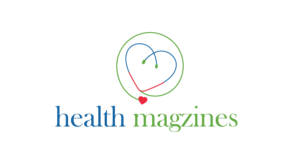In today’s rapid-paced healthcare landscape, automation holds the key to streamlined operations, and one such critical integrant earning attention is healthcare Customer Relationship Management (CRM). This technology has surfaced as a game-changer, revolutionizing the way patient data is managed and secured. Incorporating CRM into healthcare has redefined patient-centric care and the security protocols it requires.
Shaping the Future of Patient Data Management
Modern CRMs bring unprecedented efficiency to navigating patient-data highways. The fundamental promise of a robust CRM lies in its ability to consolidate masses of patient information into a cohesive, accessible database. Its characteristics include contact management, record-keeping, and transaction history, resulting in precise data analysis and significantly improved patient engagement.
ShopingCheckout | TrendhubTreasure | DigiNetTrail | WebSpacedDesign | MarketingGlobalNews | findmylinksnow | ladyboydubai
By integrating a healthcare CRM system, organizations can deploy automatic reminders, flag appointment inconsistencies, and anticipate the needs of the patients more effectively. A well-thought-out CRM can ensure systematic attention to detail while reducing dependency on manual inputs. Thus, the margin for error and data redundancy is minimized.
Security in Healthcare CRM: A Fortified Approach
In an era heavily punctuated by cyber threats and data breaches, a CRM system ensures robust security protocols are in place. Safeguarding patient information is paramount, and healthcare CRMs have stepped up the security with advanced encryption methodologies and secure access policies. By limiting data access to authorized personnel and automating back-ups, healthcare CRMs contribute significantly towards compliance with regulatory frameworks like HIPAA.
Choosing the Right Healthcare CRM
Selecting the right healthcare CRM platform can be a daunting task, given the avalanche of options in the market. Crucial criteria such as ease of use, security, scalability, and integration capabilities should be scrutinized. Check out this detailed guide to make an informed decision when choosing a healthcare CRM platform.
Medical Call Center: Driving Efficiency with Healthcare CRM
Healthcare CRM is not confined to patient data management and security. It also plays an instrumental role in the functioning of a medical call center. A CRM-enabled call center facilitates handling a large volume of calls, ensuring no patient query goes unresolved. Learn more about how healthcare CRM enhances the performance of your medical call center from our dedicated service page.
Conclusion
The advent of healthcare CRM has ushered in an era of secure and efficient patient data management. With its wide-ranging benefits, from augmenting patient engagement to assuring data security, healthcare CRM is an indispensable tool in a rapidly evolving healthcare landscape. Investing in a robust CRM system signifies being a step ahead in patient-forward care, thereby ensuring enhanced patient satisfaction and loyalty.
By integrating holistic CRM solutions, healthcare providers can make huge leaps toward automating systems, improving patient interactions, and fortifying data security, essentially reshaping the future of healthcare as we know it.
FAQs (Frequently Asked Questions)
- What is a healthcare CRM?
A healthcare CRM (Customer Relationship Management) system is software designed to manage patient relationships and data in the healthcare industry.
- How does a healthcare CRM benefit patients?
Healthcare CRMs allow for better communication, personalized care, and easy access to medical records for patients. This leads to improved patient engagement and satisfaction.
- How can a healthcare CRM improve data security?
With features such as encrypted storage, secure messaging, and permission-based access, healthcare CRMs ensure that sensitive patient information remains safe from any unauthorized access or breaches.
- Can small clinics or practices also benefit from a healthcare CRM?
Absolutely! Healthcare CRMs are designed to be scalable and adaptable to suit the needs of any healthcare organization, whether big or small. They can help small clinics and practices streamline their operations and improve patient care, leading to increased efficiency and growth.
- What are some key features of a healthcare CRM?
A healthcare CRM typically includes features such as appointment scheduling, patient data management, communication tools, billing and invoicing, analytics and reporting, and integration with other healthcare systems. These features work together to provide a comprehensive solution for managing patient relationships and data.

